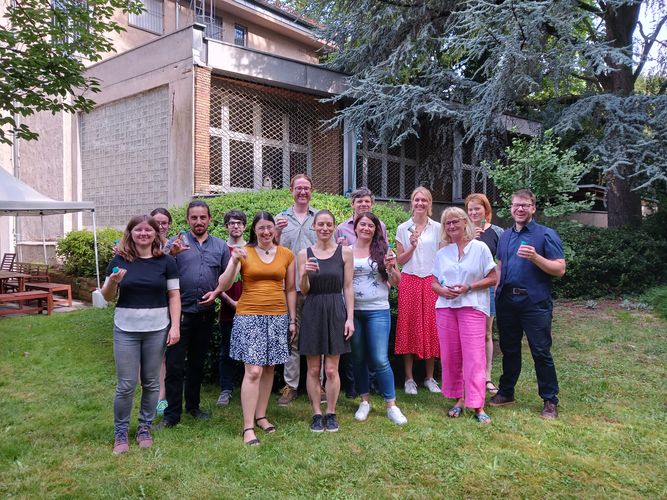From July 16 to 18, 14 members from the SPP2361, the Romano-Germanic Commission (RGK) of the German Archaeological Institute (DAI), the University of Frankfurt and beyond met for an interdisciplinary workshop on archaeoparasitology at the RGK in Frankfurt.
The workshop was organized by Lukas Werther (RGK DAI), Patrik Flammer (Oxford) and Johannes Schmidt (University of Leipzig). The starting point is the question of the detection and assessment of anthropogenic pollution in floodplains. Archaeoparasitology may play a crucial role here, as the analysis of parasite eggs can provide a complementary proxy to lipid biomarkers and archaeological finds.
Patrik Flammer was invited as an expert for the workshop due to his many years of research in archaeoparasitology and genetics in Europe. On the first day, he gave an overview of the current state of research on intestinal parasites in both an archaeological and contemporary context. Findings and insights from many studies were discussed in detail and debated on a multidisciplinary basis. In addition, Patrik Flammer gave a public lecture on the first day entitled: “The worm is in there - parasites in the focus of archaeological research”.
On the second and third days, the focus was on practical work on sample specimens that the participants brought with them. From sample preparation and microscopy to the discussion and classification of finds, the days were full of intensive and concentrated work. The topic of paleoparasitology in an archaeological and landscape archaeological context was received extremely positively and future research ideas and concepts were discussed.
